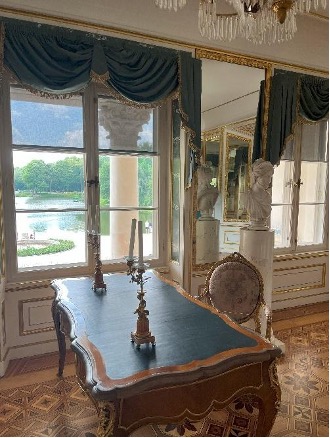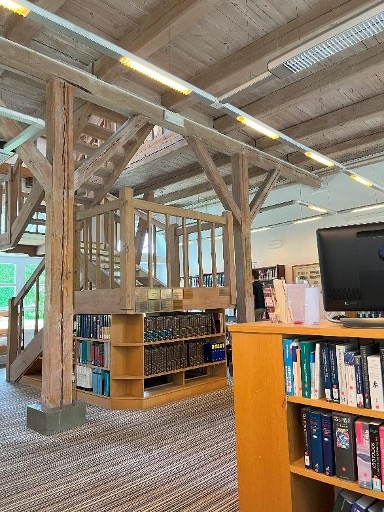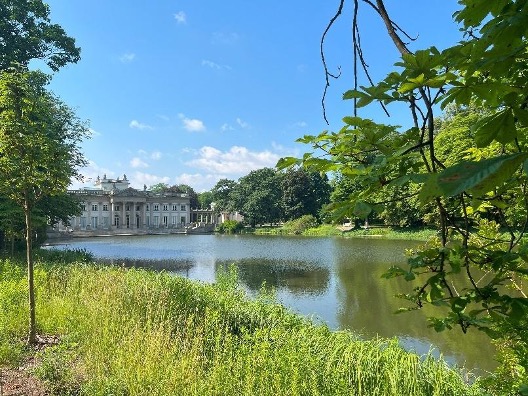Writing in Your Head
By Kieran Stenson
When I was younger, a writer told me that once he had been asked to give a speech at a college graduation in a few months. Just a few days before the event, he finally sat down to write his speech. I asked him why he procrastinated, but he insisted that he had not been procrastinating all those months—he had been writing in his head, so that when he finally sat down to type, he knew exactly what to say.

The desk of King Stanisław II August, one of the principal authors of the Constitution of 3 May 1791, at Łazienki Palace.
Now, I can’t say I share his laxity, but the core point stuck with me: when you’re presenting, make sure you are prepared, in whatever way works for you. In only a few months, I will have the chance to present my research at the President’s Showcase before a large audience. I am very excited about this opportunity. It is, of course, nerve-wracking to think about speaking in front of so many people, but in a lot of ways it is also easier than discussing research in other contexts. I certainly have lots of time to plan what I’m going to say, and I intend to use it. Furthermore, when I talk with people about my research in a regular conversation, it isn’t typically for twelve whole minutes. You can do a lot with that amount of time. And—sadly—I don’t usually have any helpful visuals either. So, presenting to a (hopefully) interested audience with a decent chunk of time and a visual presentation is really a marked improvement!

The Natolin Library at the College of Europe outside Warsaw, where I was able to conduct hours of research.
For my project, I hope I am able to communicate how the Polish Constitution of 1791 serves two purposes—the standard role of constitutional framework and also as a political treatise that explicitly attempts to convince the reader of the necessity of its reforms. I want people to understand how this is unique among constitutional documents and reveals the transformative and unprecedented nature of the changes it made to the Polish state and society. Beyond this, I hope to give the audience a chance to reflect on how the Constitution—and history in general—can offer us, if not solutions, then important examples for dealing with problems of government, international relations, and culture today. Hopefully, my audience will agree.

The famous Łazienki Palace, which I was able to visit while conducting research.
I hope that I can do my topic the justice it deserves, and help people understand why studying history is so important. Researching history is how we can build context for the world we live in today. Many people go about the world without much thought or knowledge of that history that surrounds their every step. Trying to understand the world—the people in it and the things we all do—is impossible without history. For the record, I don’t blame people at all for this. I hardly know a thing about the science and mathematics that make the world function on a much more fundamental level than history. That’s why opportunities like the President’s Showcase, where students of all disciplines can share their work, are so important. I very much look forward to my opportunity to present my work—and see what my fellow IDEA Grant recipients have accomplished as well.
